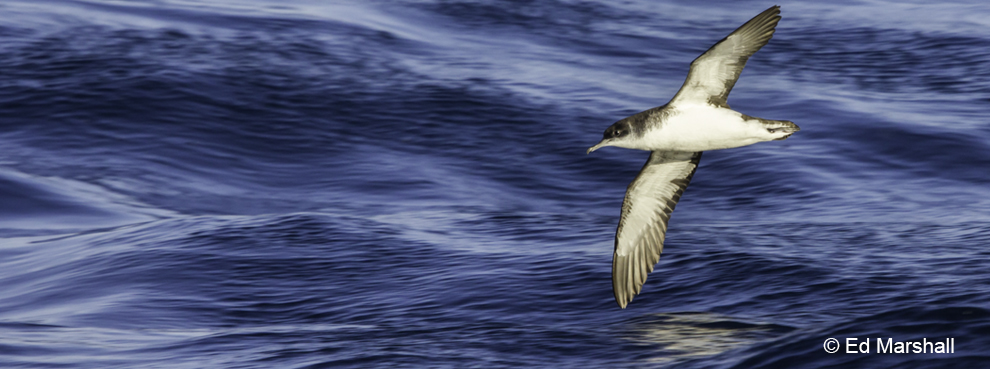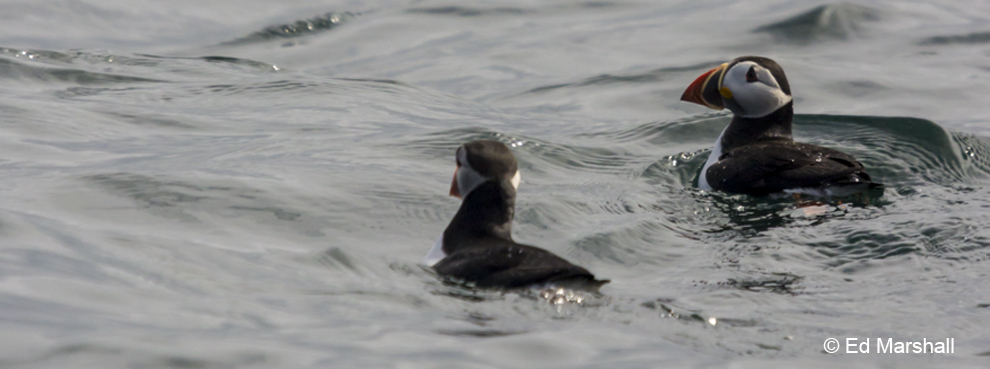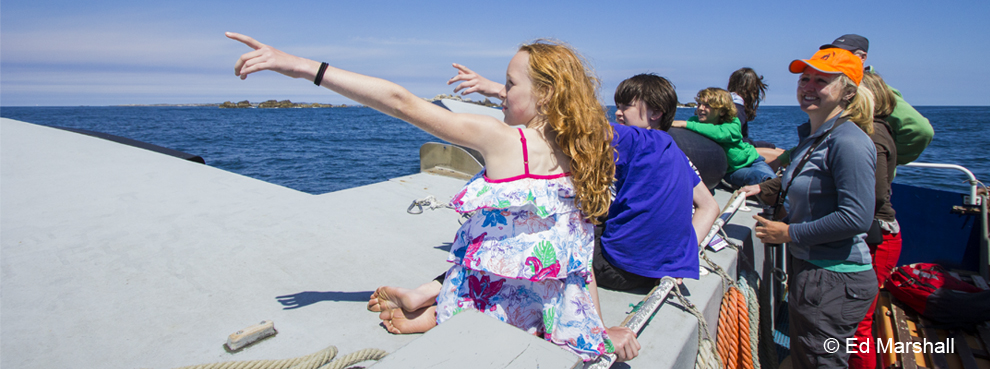Today our 10 Scillonian III ferry wildlife guides undertook refresher training ahead of the 2017 season.

Our newsletter 'The Shearwater' is out today, you can read it here under 'downloads'.

Our newsletter 'The Shearwater' is out today, you can read it here under 'downloads'.
Today Lydia and St Agnes school celebrated 'Feliz Navidad' - Merry Christmas to all our Manx shearwaters currently wintering off Argentina!
Today Jaclyn provided a seminar discussing the project to the Biosciences department. Zoology second year students will visit the islands and assist the project next summer, and as part of their degree they are learning about island restoration- so what better way than tolearn about the conservation work here in the South West.
Lydia and Holly have this week been assisting the community to undertake LANTRA training in use of reodeticide. Should a rat return to the islands the community will assist with incusion response. Thanks to everyone who is taking part.
Media release
FOR IMMEDIATE RELEASE
South West conservation success to be taken to the other side of the world and back again... by star-gazing seabirds
More than 30 young Manx shearwaters have been seen ‘star-gazing’ on two islands where the seabird’s future was in doubt because of predation by rats.
Seventy-three pairs of Manx shearwaters were recorded breeding this year on St Agnes and Gugh, in the Isles of Scilly, up from 22 in 2013 before the removal of rats.
And nine apparently occupied storm petrel nests were recorded on the two islands; the sparrow-sized seabird returned to the two islands for the first time in living memory last year.
Some of the breeding records were obtained during ‘chick-check’ walks, where residents of St Agnes learned how to monitor these two now recovering seabirds.
They were delighted by the sight of Manx shearwater chicks ‘star-gazing’. During September, chicks come out of their burrows in the dark and stare at the night sky, which is believed to the bird’s way of fixing their location, so they can navigate their way home after spending the next two or three years of their lives off South America.
Jaclyn Pearson, the RSPB’s Isles of Scilly Seabird Recovery Project manager, said all this year’s chicks would have been ‘star-gazing’ at some point but 32 were either seen during night time surveys or filmed on cameras, set up near their burrows on starry nights.
She said: “It is truly amazing to observe the behaviour of these star-gazing Manx shearwater chicks. Often fledging Manx shearwaters can only be seen on islands where wardens and research teams carry out surveys, but there is a community of 84 people here and they can actually see it where they live, which is incredible.”
Manx shearwaters, which nest in burrows, have colonised new areas on the islands since rats were removed, as well as increasing their breeding numbers. Storm petrels, which nest in tiny crevices among rocks have returned to breed after a long absence; they spend most of their time at sea and are very rare in England, where they are confined to the South West.
Both St Agnes and Gugh were declared rat-free earlier this year, two years after rats were removed from the two islands to improve the prospects for breeding seabirds.
Sarah Mason, Isles of Scilly Wildlife Trust chief executive, said: “Managing the land so that the seabirds have the right habitat to nest and also helping to reduce disturbance to the birds when they are breeding are vital elements of the project, which the Isles of Scilly Wildlife Trust team are very pleased to be part of.”
Martin Harper, the RSPB’s director of conservation, who visited the islands recently, said: “The local community is rightly proud about what it has achieved for its seabirds. The UK government is committed to restoring nature in a generation, and it can take inspiration from what has been achieved through the Isles of Scilly Seabird Recovery Project: local people coming together with charities, government and funders to tackle big problems and deliver exceptional results for wildlife and people.”
Johann Hicks, St Agnes resident and project volunteer, said: “My grandchildren will be the ones to protect these seabirds in the future and they have joined field trips to see the birds. This is a cause we share a passion for, protecting our seabirds for years to come.”
Vickie Heaney, RSPB project officer, said: “It was great to witness the joy the residents feel when they see their first ever Manx shearwater chick. We all continue to marvel at the migrations these chicks undertake in October, flying to South America for the winter without the guidance of the parents.”
Anybody who thinks they have seen a rat on St Agnes or Gugh should call the project’s ‘Rat on a Rat’ hotline on 01720 422153. The project team and islanders will then inspect the area, set up surveillance and respond if necessary.
This Isles of Scilly Seabird Recovery Project is a partnership between the RSPB, the Isles of Scilly Wildlife Trust, the Isles of Scilly Area of Outstanding Natural Beauty, Natural England and the Duchy of Cornwall. The project is funded by LIFE the EU’s programme for financing key environmental schemes across the continent and a £269,100 grant from the Heritage Lottery Fund.
Ends
For further information, images, or to arrange an interview, please contact:
Chris Baker, RSPB Communications Officer, 01392 453299 / 07701 050010
Notes:
Full details of the Isles of Scilly Seabird Recovery Project can be found at www.ios-seabirds.org.uk
Today BBC Radio Cornwall interviewed Jaclyn about the migrations of Manx shearwaters - currently migrating to South America for winter.

















